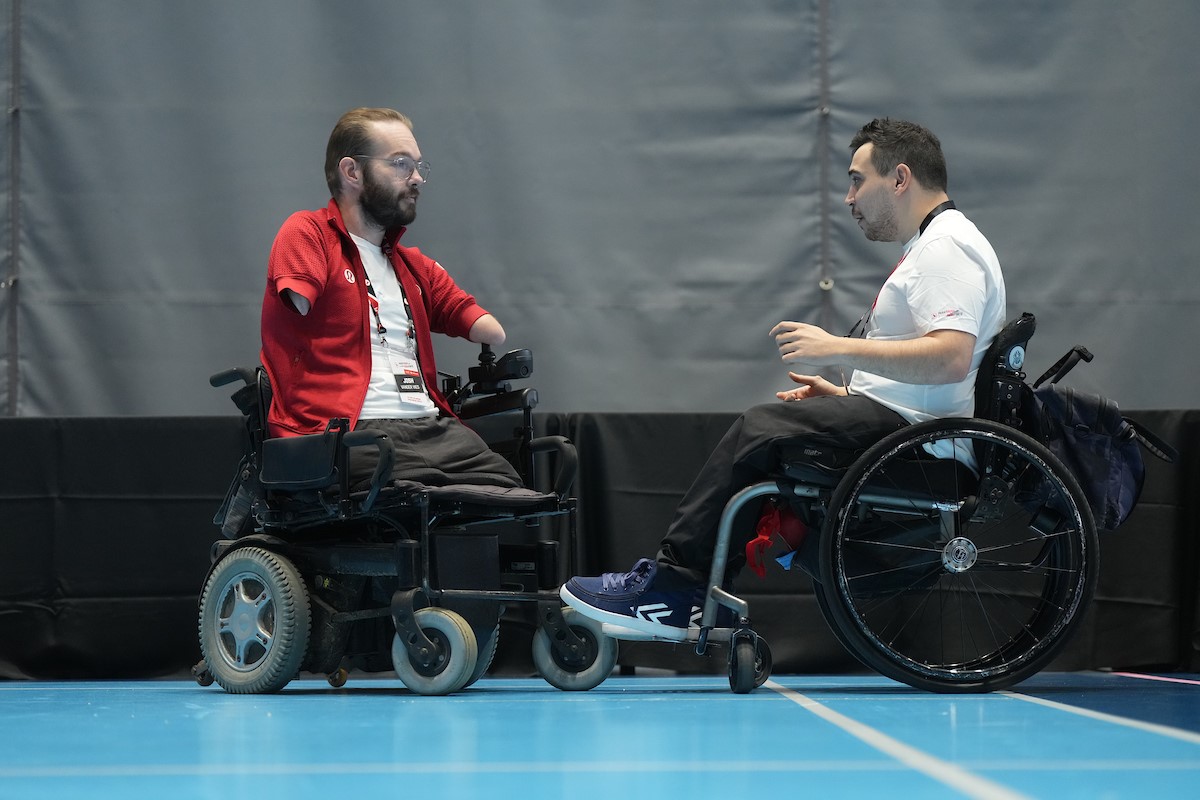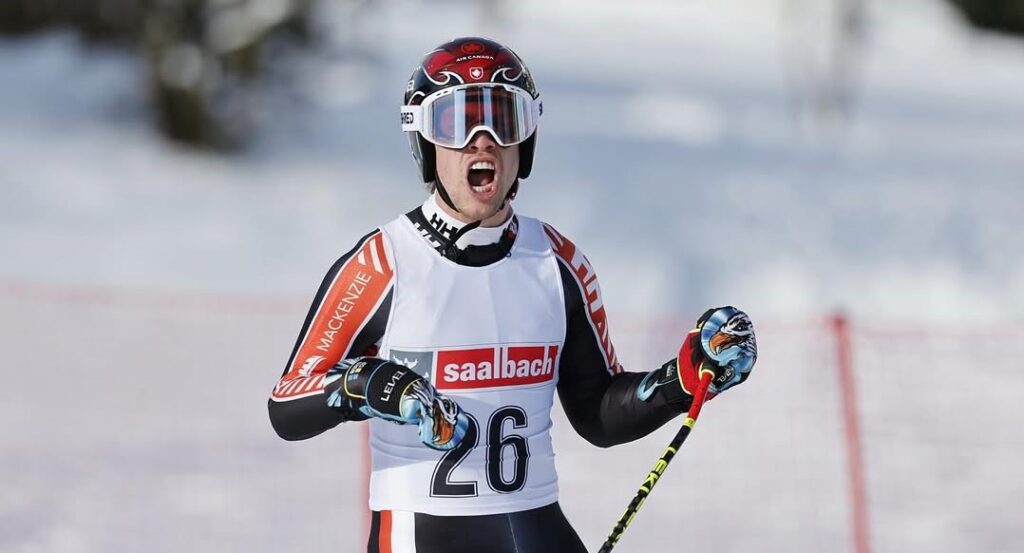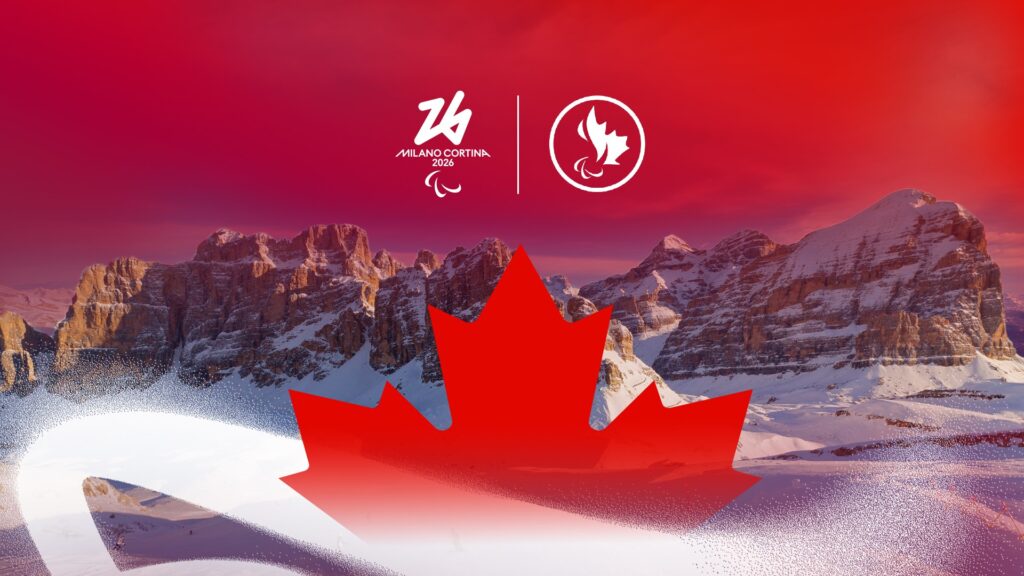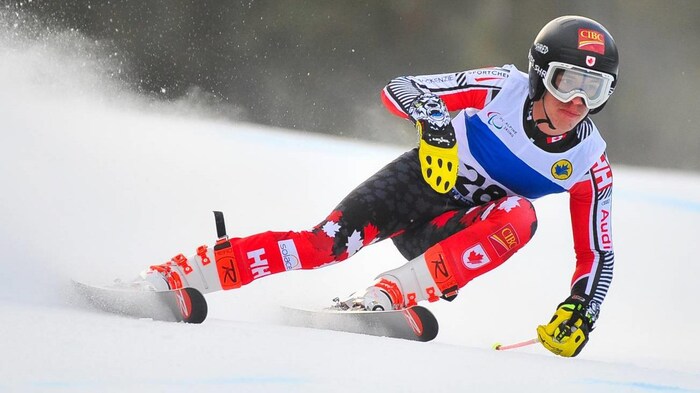As performance improves, so does equipment requirements
Fundraiser such as ParaTough Cup help ease financial pressure

Photo: Canada’s co-chef de mission Josh Vander Vies (left) with Nathan Bragg
RICHMOND, B.C. – There is a 22-year age gap between Paralympic Games legend Richard Peter and Para athlete Nathan Bragg. Both recalled their first foray into Para sport during a fireside chat panel at a ParaTough Cup event last fall.
“When I was in elementary school, I used to follow around my elementary school basketball team, with a notebook, take stats and write little stories,” said Bragg, who continues to pursue his ambitions as the senior communications coordinator for B.C. Wheelchair Sports Association. The Carleton University journalism grad was also on Canada’s media team at the 2023 Parapan American Games.
But being in a wheelchair, the 29-year-old Bragg never thought he could play a sport. However through Google he discovered a local team and invited a demo wheelchair squad to his elementary school. Peter was part of that team.
‘’That was kind of my first introduction to wow, I could actually play a sport,’’ said Bragg, born with cerebral palsy which affects his limb movements. “It wasn’t until I was 12 that I realized that there were sports out there for me.”
When Peter was injured in 1977, which left him a paraplegic, there was no Google or Internet to peruse for sports opportunities for people with a disability. However television did exist and Terry Fox and Rick Hansen both became national heroes with their Marathon of Hope and Man in Motion tours that raised millions for cancer and spinal cord research.
‘’Rick Hansen was wheeling around the world and that’s when Para sport first caught my interest,’’ said Peter, a five-time Paralympian with Canada’s men’s wheelchair basketball team, earning three gold. ‘’I said, alright, let’s try some of that stuff and, check it out.’’
After first playing wheelchair rugby, Bragg is now attempting to make inroads in the precision sport of boccia. It is a sport with no Olympic counterpart. It is somewhat similar to lawn bowls or curling where strategy and grace under pressure are essential for success.
‘’The majority of players who play boccia have quite severe physical disabilities,’’ said Bragg. ‘’So it adds a lot of complexity and physical challenge to the game.’’
Like every Para sport, boccia requires specialty equipment. For Bragg, a new chair was essential.
“My everyday day to day chair that I use for life really doesn’t work well for sport,’’ he said. ‘’So I just got a chair the other day that was about $3,500, because there’s additional customizations and things in it. Just so I can sit and throw a ball and stay stable and stay balanced.’’
For boccia players with higher degrees of impairment, equipment costs can soar if they want to compete with the best. In the BC3 category players need assistive devices such as a ramp to deliver the ball.
‘’Equipment has to be customized to people’s different body types and abilities and different things,’’ Bragg said. ‘’In an able bodied sport you’re thinking about how tall are you? How much do you weigh? In Para sport you’re thinking, how tall are you? How much do you weigh? How much balance do you have? Do you have one limb that’s shorter than the other? Is there asymmetry involved?
‘’There are so many different complexities that go into designing equipment so that people can be at their best.”
That’s why fundraisers such as the Paralympic Foundation of Canada’s ParaTough Cup are so essential to the future of Para sport in this country from grassroots to the elite level. Four events are held each season (two in the fall and two in the winter).
Wheelchairs in sports like wheelchair rugby and wheelchair basketball can exceed $10,000 in costs alone.
At ParaTough Cup, each team commits at least $5,000 to enter and competes in Para sports such as sitting volleyball, wheelchair basketball and Para ice hockey. Additional points are awarded for fundraising.
The first two events for the 2023-24 season this past fall were record breakers. It was a sellout turnout that raised $115,000 for the Vancouver event at the Richmond Oval. Two weeks later, the Montreal event generated an all-time high of $167,000 raised for the Paralympic Foundation of Canada.
‘’Events like the PTC really help to reduce stigma, reduce barriers, create access points for sport to be inclusive,’’ said Paralympic alpine skiing champion Josh Dueck, the emcee for the Vancouver stop during the fireside chat.
The last two ParaTough Cups for the season are March 7 in Calgary and March 21 in Toronto.



"*" indicates required fields
"*" indicates required fields